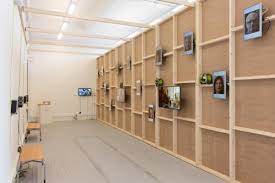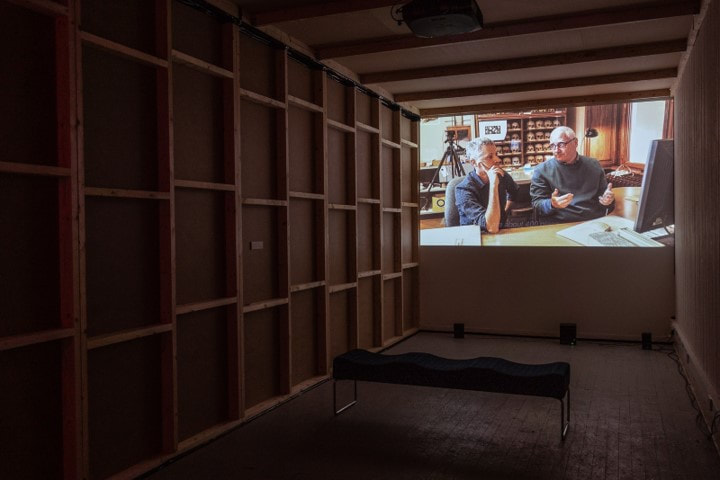Dead Images was one of five ‘Creative Co-Productions’ (CCP’s) in TRACES (Transmitting Contentious Cultural Heritages with the Arts) (2016 – 2019), an EU Horizon 2020 funded project. TRACES aimed to develop rigorous and creative investigations in to examples of contentious cultural heritage.
In Dead Images the focus was on the human skull collection in the Vienna Natural History Museum. This is seen as an example of contentious colonial collecting practices where human skulls were gathered during colonial periods and indigenous communities had ancestral remains traded, stolen or gifted to collectors. Dead Images aimed to address the legacy of such collections and consider what we could learn by bringing them to public view by using artistic practice as a vehicle. The central research questions asked how such collections could find relevance in post-colonial Europe and whether museums should retain and display them.
The TRACES Dead Images project gathered together voices of contemporary indigenous people, scholars, curators, artists and members of the public from around the world. The vehicle for the dialogue was a panoramic photograph by Tal Adler, depicting the human remains of ancestors held in the Natural History Museum of Vienna. This was shown during the 2018 Edinburgh Arts Festival at Edinburgh College of Art and supported by an international conference and educational programme. The exhibition received notable public interest in the 2018 Edinburgh Arts Festival, with over 1500 visitors, and was listed in the Guardian as ‘do not miss’.
Dead Images creative co-production team:
Tal Adler – artist, Humboldt University, Berlin
Anna Szoke – art historian, Humboldt University, Berlin
Joan Smith – artist, University of Edinburgh
John Harries – anthropologist, University of Edinburgh
Linda Fibiger – osteo-archaeologist, University of Edinburgh
Maria Teschler-Nicola – director of the Natural History Museum, Vienna
For more information:
Transmitting Contentious Cultural Heritage with the Arts - From Intervention to Co-production www.traces.polimi.it
A journal article, discussing the dilemmas and ethical considerations central to the research:
Publication: 2018, J.Smith L. Fibiger, T. Adler, J. Harries & A. Szöke, 2017, EXPOSURE: The ethics of makings, sharing and displaying photographs of human remains, Human Remains and Violence, vol. 4, no 1.
Contentious Objects/Ashamed Subjects exhibition catalogue ISSN 2531-4858 is a comprehensive overview of all the TRACES CCP ouputs. The exhibition of TRACES research was shown at the Politecnico di Milano 18 January – 6 February 2019
In Dead Images the focus was on the human skull collection in the Vienna Natural History Museum. This is seen as an example of contentious colonial collecting practices where human skulls were gathered during colonial periods and indigenous communities had ancestral remains traded, stolen or gifted to collectors. Dead Images aimed to address the legacy of such collections and consider what we could learn by bringing them to public view by using artistic practice as a vehicle. The central research questions asked how such collections could find relevance in post-colonial Europe and whether museums should retain and display them.
The TRACES Dead Images project gathered together voices of contemporary indigenous people, scholars, curators, artists and members of the public from around the world. The vehicle for the dialogue was a panoramic photograph by Tal Adler, depicting the human remains of ancestors held in the Natural History Museum of Vienna. This was shown during the 2018 Edinburgh Arts Festival at Edinburgh College of Art and supported by an international conference and educational programme. The exhibition received notable public interest in the 2018 Edinburgh Arts Festival, with over 1500 visitors, and was listed in the Guardian as ‘do not miss’.
Dead Images creative co-production team:
Tal Adler – artist, Humboldt University, Berlin
Anna Szoke – art historian, Humboldt University, Berlin
Joan Smith – artist, University of Edinburgh
John Harries – anthropologist, University of Edinburgh
Linda Fibiger – osteo-archaeologist, University of Edinburgh
Maria Teschler-Nicola – director of the Natural History Museum, Vienna
For more information:
Transmitting Contentious Cultural Heritage with the Arts - From Intervention to Co-production www.traces.polimi.it
A journal article, discussing the dilemmas and ethical considerations central to the research:
Publication: 2018, J.Smith L. Fibiger, T. Adler, J. Harries & A. Szöke, 2017, EXPOSURE: The ethics of makings, sharing and displaying photographs of human remains, Human Remains and Violence, vol. 4, no 1.
Contentious Objects/Ashamed Subjects exhibition catalogue ISSN 2531-4858 is a comprehensive overview of all the TRACES CCP ouputs. The exhibition of TRACES research was shown at the Politecnico di Milano 18 January – 6 February 2019



